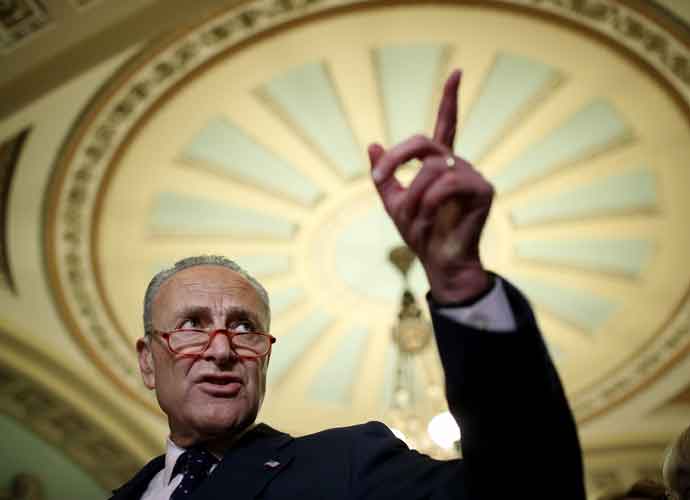Schumer & McCarthy Square Off Debt Ceiling Battle
The United States hit its debt ceiling on January 19, and Congress must raise the debt ceiling in the next few months to avoid economic catastrophe.
Until then, the federal government will rely on “extraordinary measures” to pay its bills.
Senate Majority Leader Chuck Schumer has indicated a desire to raise the debt ceiling and has directly called out the Republican-controlled House for plotting to obstruct his efforts.
“The plan is to get our Republican colleagues in the House to understand they’re flirting with disaster and hurting the American people. And to let the American people understand that as well. And I think we’ll win,” Schumer mentioned in an interview.
Subscribe to our free weekly newsletter!
A week of political news in your in-box.
We find the news you need to know, so you don't have to.
House Speaker Kevin McCarthy has insisted that the debt ceiling won’t be raised without major cuts to spending despite refusing to specify what he would target.
Still, Schumer is confident that Congress will raise the debt ceiling without conditions.
The last time the debt ceiling battle got dangerously close to ending in economic catastrophe was in 2011 during the Obama administration after the 2010 Tea Party wave.
In response to the fiasco, Standard & Poor’s (S&P) lowered America’s credit score for the first time in U.S. history. Treasury bonds were stripped of the prestigious credit rating agency’s list of risk-free borrowers, lowering the bond’s rating from “AAA” to “AA+” (one level lower). The company cited partisan strife and the unpredictability of American political institutions when making this decision.
Get the most-revealing celebrity conversations with the uInterview podcast!









Leave a comment